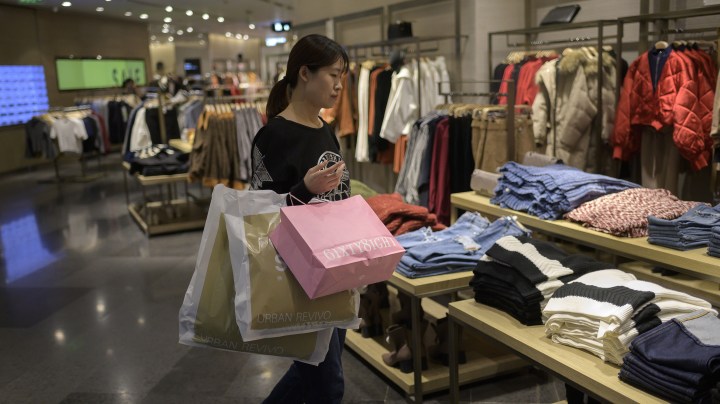
How Chinese consumers are coping with tariffs on U.S. goods
How Chinese consumers are coping with tariffs on U.S. goods

The progressive imposition of tariffs on Chinese goods by the U.S. over the past 18 months has resulted in China levying tariffs on almost all U.S. exports. And, more are set to come next month.
China cannot match the U.S. tariff for tariff because it does not buy as much from America as the U.S. does from China.
In 2018, China only imported around $120 billion worth of American goods while the U.S. bought around $540 billion worth of Chinese products, according to the U.S. Census Bureau.
Instead, Chinese officials have imposed multiple tariffs on the same items.
Many of the Chinese levies target U.S. food products, such as pecans from the state of Georgia. Tariffs on these have increased 40% since April 2018.

Consumers like Liu Hongde, 32, who loves the pecans said he doesn’t buy them as often since the price went up but, he says, its hard to resist the temptation:
“Sometimes when I wanted to eat [nuts] and can’t control myself, I will just buy some,” Liu said while passing out flyers to a busy lunchtime crowd in Shanghai’s shopping district of Nanjing West.
What worries him more than having to skip the fancy foreign products is the cost of basic foods and this is affected by factors other than tariffs.
Fruit and pork prices, for example, have seen double digit increases because of bad weather and African Swine Fever.
“I hesitate a lot when I buy things now,” Liu said.
Most Chinese consumers don’t feel the effects of tariffs on items like American beef, cherries and whiskey because they are premium products.

The few who can afford them like, e-commerce worker Sun Quan, can afford to be less cost-conscious. He said he has just received a wage increase and besides, he says, if tariffs push the prices of American goods too high, there are other options.
“If you don’t want to buy from the U.S. you can import from Australia. There’s not much difference really,” Sun said.
Zhang Jiayao, who works in advertising, said he wouldn’t mind switching to Chinese brands.
“When I was young, I thought imported goods were better. Now, I believe our Chinese products are also good,” he said.

That’s just as well. Consumers may now be pushed to buy more local brands after the Chinese yuan depreciated below seven to the dollar, making imports more expensive.
The tariffs affect more than just products. The current trade tensions sometimes makes life harder for people working on U.S.-China projects.
Elaine Hu studied at UCLA, then returned to China to work in film.
“There are a lot [fewer] films. You can’t do a lot of co-productions,” Hu said. “If you use an American crew sometimes you have problems.”
Still, she remains optimistic about her career prospects in China.

China’s government has censored discussion on the current trade tensions, making it hard at times for people to express how they really feel about the tariffs.
When asked what brands she buys, a retired government worker, who only gave her surname — Chen — for fear of official retaliation, took the opportunity to express her patriotism.
“We buy Chinese products. We are Chinese, remember that,” she said
Although the cell phone she uses is from the American company Apple.
There’s a lot happening in the world. Through it all, Marketplace is here for you.
You rely on Marketplace to break down the world’s events and tell you how it affects you in a fact-based, approachable way. We rely on your financial support to keep making that possible.
Your donation today powers the independent journalism that you rely on. For just $5/month, you can help sustain Marketplace so we can keep reporting on the things that matter to you.












